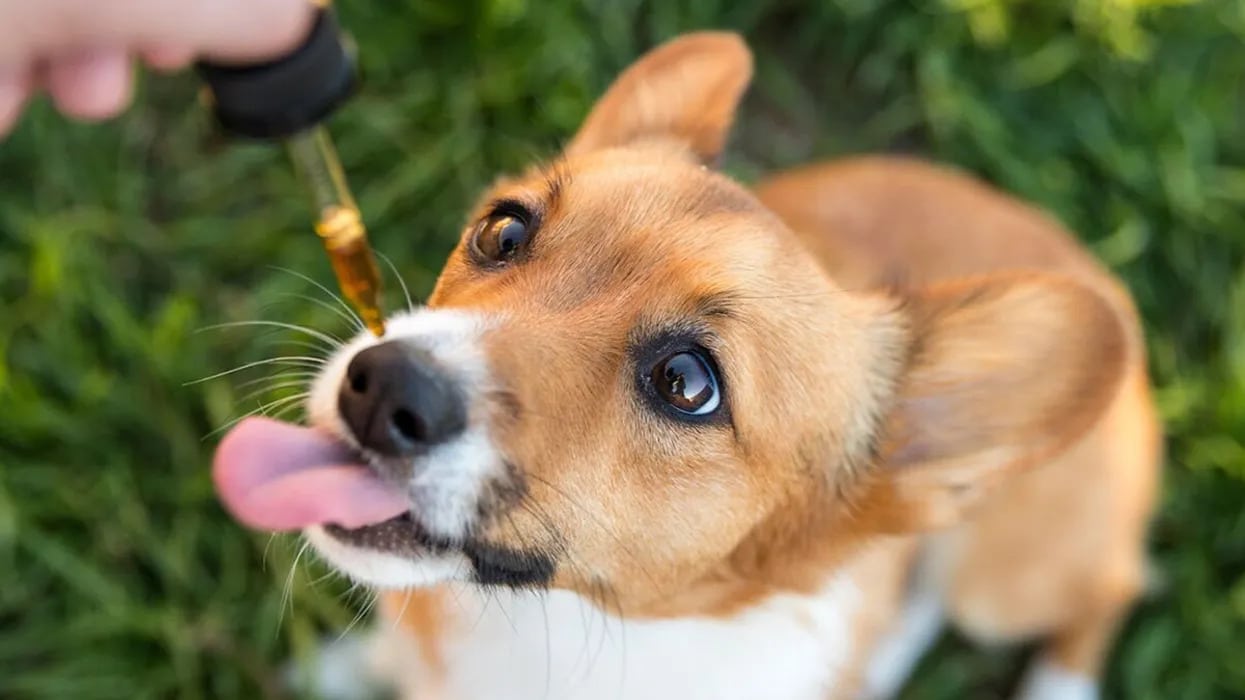
The term “cannabis” has been known since the dawn of time. It is generally stigmatized as a hallucinatory drug. The word “hemp” on the other hand, refers rather to the textile or construction industry. In reality, it is the same plant. It is just more or less used in this or that way depending on the variety. In France, the legislation on cannabis is very strict, the exploitable and marketable varieties must meet several criteria. Very fashionable today in Europe, CBD (cannabidiol) is found more and more widely in many types of products (oil, capsules, pastilles,
flowers
sweets …). This craze stems from the many virtues described by its users. Moreover, in our current society which puts forward the sanitary and the chemical, the CBD represents a real arm wrestling. Indeed, it offers a natural alternative to relieve certain ailments.
Chis new trend of “living better” through nature is increasingly appreciated by humans. Therefore, the owners of pets (dog, cat, rat …) also want the best for their little protégés. More and more of them are asking the question:
- Can you give CBD to your dog or cat for relief?
The legislation around CBD
Cannabidiol (CBD) is one of the many cannabinoids found in a cannabis plant. In France the law is clear about the famous THC (tetrahydrocannabinol) as a molecule :
- According to the annex IV of the decree of February 22, 1990, the cannabinoid THC is classified among the narcotics (1)
- According to article 222-37 of the penal code, “the illicit transport, possession, offer, transfer, acquisition or use of narcotics is punishable by ten years’ imprisonment and a fine of 7,500,000 euros” (2).
If THC is banned in France, there is no reference to CBD as an isolated compound. In November 2017, the WHO (World Health Organization) will furthermore communicate on CBD:
- “the WHO Expert Committee on Drug Dependence concluded that, in its pure state, cannabidiol (CBD) does not appear to have abuse potential or to be harmful to health” (3).
The CBD products (cannabidiol) found on the market are then totally legal as long as they respect the French standards in force:
- The hemp plant must not contain more than 0.2% THC
- The cannabis used in the manufacture of CBD products must be referenced in the official list of authorized hemp varieties (Order of August 22, 1990) (4)
- The THC level in the finished product must be zero
- Only the stem and the seeds can be exploited. However, a tolerance exists concerning the flowers and leaves of the plant
The effects of CBD and its spectrum of actions
Few studies demonstrate all the benefits of CBD because of the complexities of implementation given the current legislation on cannabis. However, some scientific research and many testimonies agree that CBD is :
- an excellent muscle relaxant,
- a good analgesic for some chronic pain
- a significant help in reducing anxiety and stress.
The broad positive properties of CBD result from the natural activity of the endocannabinoid system (ECS) to regulate our body. Indeed, this system has an action on the basic functions such as :
- sleep, body temperature, memory, pain and inflammation. It has receptors located in the peripheral organs and the central nervous system.
It therefore has a wide range of actions. CBD has no direct affinity for these endocannabinoid receptors (unlike THC). But, it acts on enzymes naturally present in our body. Thus, it stimulates an action without disrupting the system!
CBD for dogs, advice and dosage
All mammals have a SEC to maintain their internal balance. It works in an almost similar way to ours.
As CBD acts positively on humans, these benefits should be comparable on a pet. CBD will obviously have to be administered in doses specific to the animal in question.
In 2021, only very few scientific studies prove its effectiveness on a dog or a cat. However, unless you take a very large overdose, CBD is not a toxic substance. It can therefore be used sparingly to test its effects on a behavioral disorder or chronic diseases observed in his animal.
CBD for dogs with anxiety, epilepsy, osteoarthritis.
Pet owners and dog owners in particular, testify to the many virtues of CBD:
- Reduction of anxiety, anguish, stress: Your dog Rantanplan can’t help but chew or destroy everything he finds when you leave him alone. This behavior may simply be an expression that he is feeling stressed about your absence. Giving him a few drops (depending on weight, age, …) of CBD oil, for example, could be a beneficial help to reduce his anxiety. This way, he can wait for your return more serenely.
- Decreased muscle or joint pain according to a study done on dogs with osteoarthritis (5).
- Decrease in the frequency of epileptic seizures according to a scientific test done on dogs (6).
CBD products for dogs, cats…
For a few years in France, the number and diversity of products containing CBD have only multiplied:
hemp oil
capsules, pastilles, sweets, resin, flowers, vegetable oils, balms, …
However, pets are not left out of this range of CBD merchandise. Indeed, you will not find CBD medications at your veterinarian’s office. But, some products, such as
cannabis oils
are also consumable for dogs, cats and other animals.
CBD oil for a dog
You must be very careful about the composition of the oil in question before giving it to an animal. A dog, for example, has many more cannabinoid receptors than a human being. It will therefore be much more sensitive to the THC concentration of the product. In addition to the quality of the oil (extraction method, variety of the cannabis plant, organic), prefer a CBD hemp oil totally devoid of THC. It will be all the better for the animal’s health. Similarly, the dosage (number of drops) administered should be specific to the animal species, its size, weight and veterinary history. Always start with the lowest recommended dosage. Wait a few days to see the effects before potentially increasing the dose gradually.
Specific CBD for dogs and cats
To facilitate the administration of this compound as a dietary supplement for animals, the CBD market has not stopped there! There are indeed specific products for dogs and cats:
- Oils made from fish oil that simplify the feeding of our animal friends.
- Treats for dogs and cats with CBD.
If in France there are no CBD drugs yet, in Switzerland, a veterinary CBD product for dogs and cats is marketed under the name of Anabidiol from the laboratory VIRBAC. It brings the cannabidiol necessary to the SEC of the animal in order to help it to maintain its internal balance.
Side effects of CBD products on animals
The oils widely found on the European market have THC levels below 0.2% in order to comply with current legislation. This concentration is quite residual for a human being. It does not have the psychoactive “high” or “stone” effects of illegal cannabis (high levels of tetrahydrocannabinol). But, on a small dog, a cat or an animal already taking a treatment, some side effects can sometimes occur:
- numbness, abnormal behavior, vomiting, tremors, spasms, …
If in doubt, it is best to talk to a veterinarian before giving CBD to your dog or cat. He will be able to advise you on the specific needs of your pet.
To conclude…
The effects of using a product containing CBD in a dog, cat or any other mammal still need to be studied in order to understand exactly what they do to the SEC. However, the reputation of CBD as a “super relaxant” is no longer to be proven. This property is particularly interesting for animals that have a tendency to develop behavioral disorders, skin problems and other ailments related to stress (noise, absence of one’s master, boredom, …). Without taking into account the other properties of CBD, just for this one, a product with cannabidiol (oil, candy, …) appears as a nice natural alternative to chemical treatments.
FAQ : CBD and animals
[sp_easyaccordion id=”10612″]
References:
- Order of February 22, 1990 establishing the list of substances classified as narcotics:
- https://www.legifrance.gouv.fr/loda/id/JORFTEXT000000533085/2020-10-09/
- Article 222-37 of the penal code: https://www.legifrance.gouv.fr/codes/id/LEGIARTI000006417724/2002-01-01/
- WHO: https://www.who.int/features/qa/cannabidiol/fr/#:~:%20l’un,%C3AAtre20nocif20for20the20healthC3%A9.
- Order of August 22, 1990 implementing Article R. 5132-86 of the Public Health Code for cannabis: https://www.legifrance.gouv.fr/loda/id/JORFTEXT000000351447/2020-10-09/
- Pharmacokinetics, Safety, and Clinical Efficacy of Cannabidiol Treatment in Osteoarthritic Dogs, Lauri-Jo Gamble1, Jordyn M. Boesch1, Christopher W. Frye1, Wayne S. Schwark2, Sabine Mann3, Lisa Wolfe4, Holly Brown5, Erin S. Berthelsen1 and Joseph J. Wakshlag1, published in Frontiers in Vetenary Science, 23 July 2018: https://www.frontiersin.org/articles/10.3389/fvets.2018.00165/full
- Randomized blinded controlled clinical trial to assess the effect of oral cannabidiol administration in addition to conventional antiepileptic treatment on seizure frequency in dogs with intractable idiopathic epilepsy, Stephanie McGrath, Lisa R Bartner, Sangeeta Rao, Rebecca A Packer, Daniel L Gustafson , published by National Library of Medicine, June 2019 : https://pubmed.ncbi.nlm.nih.gov/31067185/








